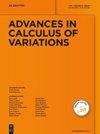L'ontologie politique de Martin Heidegger
IF 1.4
3区 数学
Q1 MATHEMATICS
引用次数: 66
Abstract
EnglishThe political ontology of Martin Heidegger. Philosophical discourse, like any other form of expression, is the product of trans. The language of Heidegger is an accomplished product of euphemistic expression which allows the appearance of political phantasms and compulsions within the limits of the philosophical definition of the expressable. This can be accomplished, for instance, by inserting such taboo words as "Fursorge" into network of relationships in such a way that they become irrecognizable. By imposing a certain reverence, philosophical discourse practices form of symbolic violence. This reverence imposed by philosophical discourse is correlary to its acknowledgement as a product of philosophical endeavour. The resultant symbolic violence supposes the existence of the institutionalized circle of col lective misunderstanding. More precisely this circle is the set of social mechanisms which insures the regeneration of the corps of philosophy professors and of their ethico-political dispositions. Having once established the philosophical alchemy, one can define the expressive intent of work by comparing it with the less euphemistical discourses of the "revolutionary conservatives" (Junger, Niekisch, Muller van den Bruck, etc.). In the same way, one can determine the laws of transformation to which the philosophical field of time (and, in particular, the confrontation with the neo-Kantians of Marburg) subjects this particular expressive intent. The works of Heidegger thus appear to be the product of a meeting between a position tobe taken within the field of philosophy and a system of ethico-political dispositions associated with particular social trajectory. Thusly, one can reconstitute the social development of the political ontology of Martin Heidegger, a political mood transformed by philosophical alchemy into ontology. DeutschDie Politische Ontologie Martin Heideggers. Wie jede Aussage sind auch philosophische Aussagen das Produkt eines Ausgleichs zwischen einem Aussage interesse und der Zensur eines sozialen Feldes. Die Sprache Heideggers ist das Produkt einer Euphemisierung die es erlaubt, politische Phantasmen und Triebe auszudrucken, indem jene Ausdrucke, die im philosophischen Rahmen tabuisiert sind (z.B Fursorge), in einen Zusammenhang gestellt werden, der sie unkenntlich macht. Die symbolische Gewalt, die die philosophische Sprache ausubt indem sie eine ehr furchtsvolle Arbeitsweise verlangt, die zur Anerken nung als philosophisches Werk dazugehort, setzt eine institutionalisierte kollektive Unkenntnis voraus, d.h die Gesamtheit jener sozialen Mechanismen, die die Reproduktion des Standes der Philosophieprofessoren und deren ethischer und politischer Einstel lungen garantieren. Wenn man einmal die Wege der philosophischen Alchimie dargestellt hat, kann man die Absichten des Werkes Heideggers durch eine Annaherung an die weniger euphemisierten Werke "konservativer Revolutionare" (Junger, Niekisch, Moller van den Bruck, usw.) definieren sowie die Regeln fur die Veranderungen die das philosophische Feld seiner Zeit (v.a, die Konfrontation mit den Neu Kantianern aus Marburg) diesem Aussageinteresse auferlegt Das Werk Heideggers erscheint so als das Produkt eines Zusammenspiels der Inbesitznahme einer Position im philosophischen Feld und der ethischen und politischen Einstellungen, die mit einer besonderen sozia len Laufbahn zusammenhangen. So kann man die soziale Genese der Ontologie Martin Heideggers rekonstruieren, eine durch die philosophische Alchimie in eine Ontologie umgeformte politische Stimmung.海德格尔的政治本体论
马丁·海德格尔的政治本体论。哲学话语,像任何其他形式的表达一样,是翻译的产物。海德格尔的语言是委婉表达的完成产物,它允许在可表达的哲学定义的范围内出现政治幻觉和强迫。这可以实现,例如,通过将“分手”这样的禁忌词插入到关系网络中,使其变得无法识别。哲学话语通过强加某种敬畏,实践了象征暴力的形式。这种由哲学话语所强加的敬畏,与承认它是哲学努力的产物是相关联的。由此产生的象征暴力假设了集体误解的制度化循环的存在。更确切地说,这个循环是一套社会机制,它保证哲学教授队伍及其伦理政治倾向的再生。一旦建立了哲学炼金术,人们就可以通过将其与“革命保守主义者”(荣格尔、尼基希、穆勒·范·登·布鲁克等)不那么委婉的话语进行比较来定义作品的表达意图。以同样的方式,人们可以确定时间的哲学领域(特别是与马尔堡的新康德主义者的对抗)对这种特殊表达意图的转化规律。因此,海德格尔的作品似乎是哲学领域内的立场与与特定社会轨迹相关的伦理政治倾向系统之间相遇的产物。由此,我们可以重构海德格尔政治本体论的社会发展,这是一种被哲学炼金术转化为本体论的政治情绪。德国政治本体论,马丁·海德格尔。我们的哲学是哲学,我们的哲学是生产,我们的哲学是生产,我们的哲学是生产,我们的哲学是生产,我们的哲学是生产,我们的哲学是生产,我们的哲学是生产。海德格尔的《哲学的幻影》,《政治的幻影》,《哲学的幻影》,《哲学的幻影》,《哲学的幻影》,《哲学的幻影》,《哲学的幻影》,《哲学的幻影》,《哲学的幻影》。2 . Die Die symbolische Gewalt, Die Die philosopheische spacher, Die zur Anerken nung als philosopheches Werk dazugehort, setzt eine institutionalisierte collective unkenkentvolaus, Die gesamtheer socizialen Mechanismen, Die Die regenerationdes Standes of philosophy教授,Die Die ethischer和政治家爱因斯坦lungen garantieren。当一个人最终决定了他的哲学观点时,他认为,海德格尔的观点和他的观点都是“保守的革命”(Junger, Niekisch, Moller van den Bruck, usw)定义了他的观点和观点。在哲学领域,在伦理学领域,在政治领域,在哲学领域,在哲学领域,在伦理学领域,在哲学领域,在哲学领域,在伦理学领域,在哲学领域,在哲学领域,在哲学领域,在哲学领域,在哲学领域,在哲学领域,在哲学领域,在哲学领域,在哲学领域,在哲学领域,在哲学领域,在哲学领域,在哲学领域,在哲学领域,在哲学领域,在哲学领域,在哲学领域,在哲学领域,在哲学领域,在哲学领域,在哲学领域,在哲学领域,在哲学领域,在哲学领域,在哲学领域,在哲学领域,在哲学领域,在哲学领域,在哲学领域,在哲学领域,在哲学领域,在哲学领域,在哲学领域。因此,康德的本体论是关于社会的,海德格尔的本体论是关于社会的,海德格尔的本体论是关于政治的。
本文章由计算机程序翻译,如有差异,请以英文原文为准。
求助全文
约1分钟内获得全文
求助全文
来源期刊

Advances in Calculus of Variations
MATHEMATICS, APPLIED-MATHEMATICS
CiteScore
3.90
自引率
5.90%
发文量
35
审稿时长
>12 weeks
期刊介绍:
Advances in Calculus of Variations publishes high quality original research focusing on that part of calculus of variation and related applications which combines tools and methods from partial differential equations with geometrical techniques.
 求助内容:
求助内容: 应助结果提醒方式:
应助结果提醒方式:


